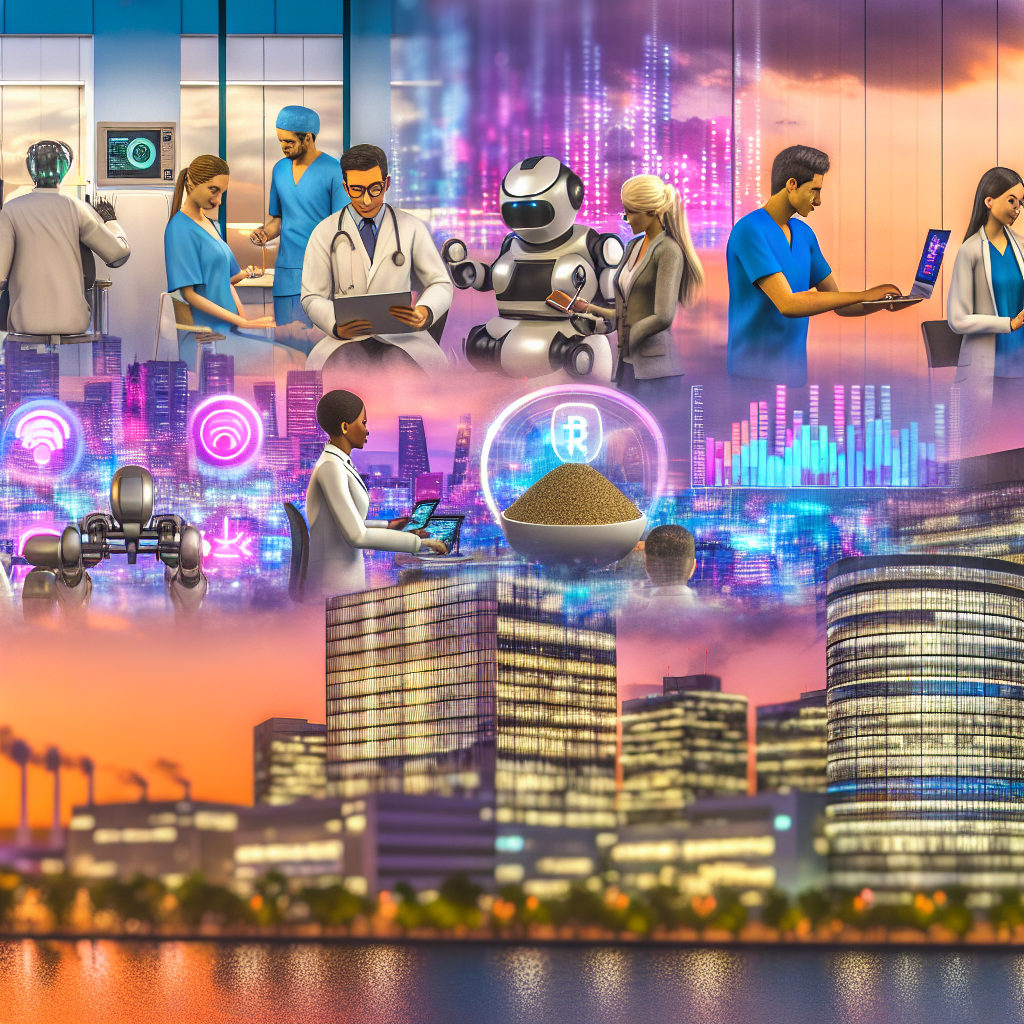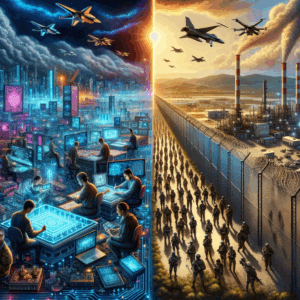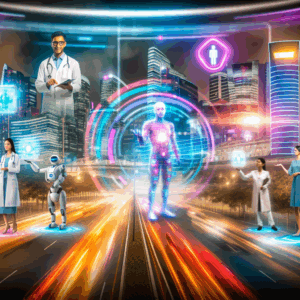AI Advancements Transforming Industries
Introduction
Artificial Intelligence (AI) has evolved from a futuristic concept to a ubiquitous presence reshaping modern industries. With rapid technological advancements, AI has permeated a myriad of sectors, significantly enhancing operational efficiencies and user experiences. As businesses seek innovative solutions to address complex challenges, AI has emerged as a pivotal tool, powering transformation across diverse fields from healthcare to logistics. This blog post delves into how AI is revolutionizing key industries, shedding light on its applications, benefits, and the future landscape of AI integration.
AI in Healthcare
Artificial intelligence has ushered in a new era of innovation in healthcare, enabling breakthroughs in diagnostics and personalized medicine. AI algorithms are adept at analyzing vast amounts of patient data, facilitating early detection of diseases and personalized treatment plans. In radiology, AI-powered imaging tools enhance diagnostics by accurately interpreting scans, reducing human error, and consequently improving patient outcomes.
Moreover, AI is transforming drug discovery processes. By analyzing genomic data and clinical trials, AI systems expedite the identification of potential drug candidates, significantly cutting down the time and costs associated with bringing new medications to market. The integration of AI in healthcare not only optimizes patient care but also enhances operational efficiencies by automating administrative tasks, allowing healthcare professionals to focus on patient-centered care.
AI in Finance
The financial industry has rapidly adopted AI technologies to reinforce security and optimize services. AI algorithms are crucial in fraud detection, where they analyze transaction patterns to identify suspicious activities in real-time, ensuring the protection of customer assets. Moreover, AI in finance extends to personalized financial advice, where automated systems assess an individual’s financial health and offer tailored investment and savings recommendations.
Machine learning algorithms are shaping trading strategies by processing vast datasets to uncover patterns and predict market trends. This data-driven approach enhances decision-making capabilities and increases trading efficiency. Additionally, AI chatbots in financial services streamline customer interactions, providing 24/7 support and resolving queries efficiently, thereby enhancing overall customer experience.
AI in Manufacturing
Manufacturing industries are embracing AI to build smarter factories capable of self-regulation and optimization. AI-driven automation technologies are central to this transformation, enhancing productivity and precision while minimizing human intervention. Predictive maintenance is one such application, where AI monitors equipment health to predict failures, thus reducing downtime and maintenance costs.
Additionally, AI analytics optimize supply chain management by forecasting demand, managing inventory, and planning logistics. Quality control processes leverage AI image recognition tools to detect defects with high accuracy, ensuring product quality and minimizing wastages. These innovations position AI as a catalyst for efficiency and competitiveness in manufacturing.
AI in Retail and E-commerce
In the retail landscape, AI is enhancing customer experiences through sophisticated recommendation systems that analyze consumer behavior and preferences. These personalized interactions not only boost sales but also foster customer loyalty. AI analytics further streamline inventory management by predicting trends and optimizing stock levels, reducing the risk of overstocking or stockouts.
AI-driven chatbots are revolutionizing customer service, providing instant support and handling inquiries efficiently, which improves customer satisfaction. Additionally, the retail sector benefits from AI in fraud prevention, where AI systems scrutinize transactions for anomalies and secure data exchanges, protecting both retailers and consumers from cyber threats.
AI in Transportation and Logistics
Transportation industries are witnessing a paradigm shift with AI technologies facilitating the advent of autonomous vehicles. These driverless cars promise to enhance road safety and improve efficiency in urban planning. Additionally, AI is pivotal in logistics and supply chain management, optimizing route planning and reducing delivery times and costs through intelligent decision-making.
AI-based traffic management systems are being developed to alleviate congestion and optimize urban mobility. These systems analyze real-time data to suggest optimal routing and improve traffic flow. In the logistics domain, AI enhances operational efficiency, contributing to more sustainable supply chains by optimizing resource allocation and minimizing carbon footprints.
AI in Education
AI is shaping modern educational experiences, offering personalized learning through adaptive technologies. Adaptive learning systems tailor educational content to individual student needs, accommodating diverse learning paces and styles, thereby enhancing student engagement and success rates. AI analytics are used to track student performance, providing educators with insights to refine teaching strategies.
The automation of administrative tasks also enriches educational institutions, allowing educators to focus more on teaching and less on tedious paperwork. Virtual classrooms benefit from AI by offering interactive and immersive learning experiences, bridging the gap between traditional and digital education, and expanding access to quality educational resources.
Code Showcase: AI Algorithm Examples
While the code implementation is not a focus in this narrative, practitioners exploring AI can benefit from experimenting with simple predictive models using Python libraries like TensorFlow or scikit-learn. These exercises provide foundational insights into AI applications across industries. For those interested, resources such as datasets for machine learning training, tutorials on neural networks, and community forums offer valuable guidance for developing AI competencies and expanding practical knowledge.
Conclusion
AI is undoubtedly a transformative force, reshaping industries by driving efficiencies, enhancing decision-making, and creating innovative solutions for contemporary challenges. As AI technologies continue to evolve, their integration into various sectors promises to unlock unprecedented growth and productivity. With ample opportunities for advancement, professionals across fields are encouraged to delve into AI applications, harnessing their potential to pioneer innovation and leadership in their respective domains.





